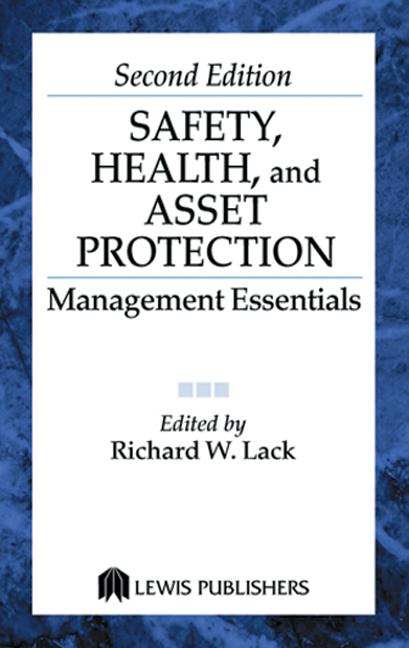 The feds tell Lowe’s to get the lead out, CSB issues reports on West, TX explosion and Deepwater Horizon tragedy and a manufacturing company logs a million safe hours. These were among the week’s top EHS-related stories, as featured on ISHN.com.
The feds tell Lowe’s to get the lead out, CSB issues reports on West, TX explosion and Deepwater Horizon tragedy and a manufacturing company logs a million safe hours. These were among the week’s top EHS-related stories, as featured on ISHN.com.
Reflecting on Workers Memorial Day
NIOSH chief: “Our duty remains unchanged”
Workers Memorial Day, April 28, reminds us that every death, injury, or illness on the job represents a human tragedy. Behind each statistic is the loss of a loved one’s life, the diminution or loss of a father’s or mother’s ability to provide for family needs, or a medical crisis that can have lifelong consequences.
10 tips for making your dust collector safer
While the most basic function of a dust collector is to keep workers and workplaces safer, not all collectors are created equal from a safety standpoint. Here are some tips for ensuring that your dust collector is as safe as possible.
OSHA’s combustible dust rule moves closer to reality in 2014
A rule to establish standards for combustible dust that’s been in the works since 2009 is scheduled to move closer to completion in 2014, with a proposed draft regulation due this spring.
Does the beat go on when a worker goes down with a hand injury?
The most serious cases of hand and arm injuries in the workplace carry a stiff price tag, in addition to the pain and suffering of the injured worker.
Florida workers were exposed to hexavalent chromium
A Florida manufacturer has been cited for 23 safety and health violations, after an OSHA investigation found that its workers were exposed to dangerous welding fumes and other hazards.
National COSH releases "2014 Preventable Deaths: The Tragedy of Workplace Fatalities"
Just in time for Workers' Memorial Day (April 28), the National Council for Occupational Safety and Health (NYCOSH) has released its annual report on preventable deaths in the U.S. workplace.
Combustible Dust Safety Q&A
What are the NFPA standards that address combustible dust issues? Tony and Mike: In trying to sort through the list of combustible dust standards, a good starting point for every EHS professional is NFPA 654, the Standard for the Prevention of Fire and Dust Explosions from the Manufacturing, Processing and Handling of Combustible Particulate Solids.
Which big U.S. companies are using renewable energy?
Some familiar names make the EPA’s list
The EPA’s Green Power Partnership latest list of the Top 100 organizations that are choosing to use electricity from clean, renewable sources -- like wind and solar power – shows that tech companies are leading the way, although more traditional industries are on it as well.
ASSE’s 2014 Triangle Award for Heroic Dedication goes to Stefan Bright
The American Society of Safety Engineers (ASSE) is proud to announce Stefan Bright as the winner of the 2014 Triangle Award for Heroic Dedication for his role in establishing a field manual, training and standards that reduced fatalities among professional window washers by 30 percent over the last two decades.
CSB: West, TX explosion was preventable
Investigation found lack of regulation at all levels of government
The lessons learned from the deadly 2013 West, Texas explosion and fire are not being passed along to emergency responders in other communities with facilities that store ammonium nitrate (AN), according to the U.S. Chemical Safety Board (CSB).
Ga. manufacturer celebrates a million hours without a lost time incident
The bigwigs came from as far away as Denmark when hundreds of Wheelabrator 200 employees and guests gathered together last month to mark a special event: one million hours without a lost time incident.
Obesity linked to breast cancer risk
Being overweight can raise a postmenopausal woman’s risk of breast cancer according to a new study, which finds a link between a higher risk for the disease and a high body mass index (BMI), a measure of body fat based on height and weight.
“Alarming” increase in fatalities continues in telecommunications tower industry
Seven worker deaths so far in 2014
The high-hazard telecommunications tower industry claimed another victim Nov. 23rd in Wichita, Kansas, further fueling OSHA’s concern about the alarming increase in preventable injuries and fatalities at tower worksites.
Michigan farm houses temp workers in unhealthy conditions
A Michigan farmer that houseshis temporary workers in substandard buildings with broken toilets, showers and screen doors, standing water and pest infestations has been ordered by a federal judge to clean up his act.
OSHA to hold national construction stand-down in June
Emphasis will be on fall protection
OSHA will host a National Safety Stand-Down for Fall Prevention in Construction On June 2-6, in order to raise awareness about the hazards of falls – the leading cause of death in the construction industry.
The Deepwater Horizon tragedy, four years later
The death and destruction “are seared into our consciousness”
Four years after an explosion on BP’s Deepwater Horizon oil drilling rig killed eleven workers and caused the largest offshore oil spill in U.S. history, the U.S. Chemical Safety Board (CSB) is ready to release its report into the causes of the disaster.
Home renovation contractors hired by Lowe’s must follow lead regulations
Company reaches agreement with DOJ, EPA
Following the discovery that some contractors hired by Lowe’s Home Centers to renovate homes had violated federal regulations regarding lead dust, the company has agreed to a corporate-wide compliance program at its 1,700+ stores.
What caused errors in those lab tests your doctor ordered for you?
Laboratory testing is indispensable to patient care. Although it accounts for only 2% of U.S. healthcare expenditures, laboratory medicine is critical for accurate diagnosis and treatment planning and is the topic of ECRI Institute’s most recent safety study.
Report says government ignored health risks to Ground Zero cleanup workers
NYCOSH calls for major changes in disaster response
Contending that government inaction contributed to the health problems of those who responded to the collapse of the World Trade Center, an advocacy group is calling for substantial changes in the way the government handles disasters.


